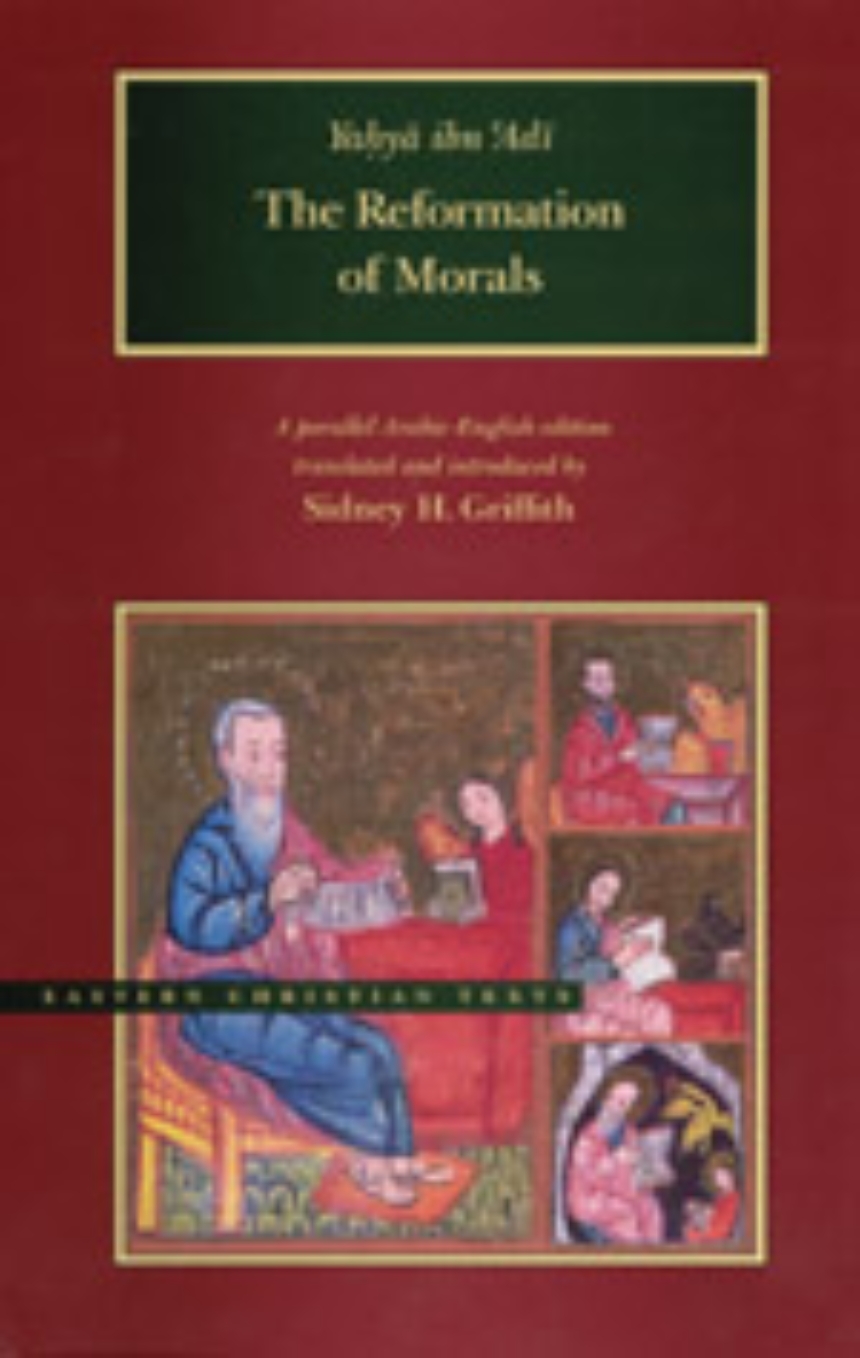Under the title The Reformation of Morals, the tenth-century Syrian Orthodox scholar Yahya ibn ’Adi offered encouragement to the effort to promote moral perfection, especially among kings and other members of the social elite: his tract, on the social virtues and vices, gives extensive advice about the cultivation of the former and the extirpation of the latter. Where there are many echoes of Hellenistic moral philosophy in his presentation, the topical profile of the work and the language the author uses reveal his participation in the Baghdad circle of philosophers and intellectuals—both Christian and Muslim—who were responsible for much that has come to be regarded as typical of the classical culture of the Islamic world. In fact, this text has occasionally been attributed to one or another famous Muslim author. It now stands as an important Christian contribution, in Arabic, to a strand of moral philosophy that is an integral component of the intellectual tradition of the world of Islam.
Table of Contents
Abbreviations
Foreword
Preface
Introduction
I. Yahya ibn ‘Adi al-Takriti
II. Yahya ibn ‘Adi al-Mantiqi
III. Yahya ibn ‘Adi, the Theologian
IV. Yahya ibn ‘Adi and the Kitab tahdhib al-akhlaq
A. The Definition of Human Moral Qualities
B. The Tripartite Soul
C. Virtues and Vices
D. The Way of Reformation
E. The Perfect Man
V. The “Philosophical Life” in Yahya ibn ‘Adi’s View
Note on the Text and Translation
The Reformation of Morals
Part One: Prolegomena to the text
On man’s moral qualities
Part Two: The faculties of the soul are the necessary cause for the differentiation of the moral qualities
The appetitive soul
The irascible soul
The rational soul
Part Three: On the good and the bad moral qualities
On the good moral qualities
On the bad moral qualities
On moral qualities that are sometimes virtues and sometimes vices
Part Four: Practicing the noble moral qualities
The necessity of the reformation of morals
Training the appetitive soul
Taming the irascible soul
Strengthening the rational soul
Epilogue
Part Five: Man’s attainment of perfection
Description of the complete man
The rule of high-mindedness and generosity
Patience and the love of all men
The perfect king
Conclusion of the text
Bibliography
Index
Foreword
Preface
Introduction
I. Yahya ibn ‘Adi al-Takriti
II. Yahya ibn ‘Adi al-Mantiqi
III. Yahya ibn ‘Adi, the Theologian
IV. Yahya ibn ‘Adi and the Kitab tahdhib al-akhlaq
A. The Definition of Human Moral Qualities
B. The Tripartite Soul
C. Virtues and Vices
D. The Way of Reformation
E. The Perfect Man
V. The “Philosophical Life” in Yahya ibn ‘Adi’s View
Note on the Text and Translation
The Reformation of Morals
Part One: Prolegomena to the text
On man’s moral qualities
Part Two: The faculties of the soul are the necessary cause for the differentiation of the moral qualities
The appetitive soul
The irascible soul
The rational soul
Part Three: On the good and the bad moral qualities
On the good moral qualities
On the bad moral qualities
On moral qualities that are sometimes virtues and sometimes vices
Part Four: Practicing the noble moral qualities
The necessity of the reformation of morals
Training the appetitive soul
Taming the irascible soul
Strengthening the rational soul
Epilogue
Part Five: Man’s attainment of perfection
Description of the complete man
The rule of high-mindedness and generosity
Patience and the love of all men
The perfect king
Conclusion of the text
Bibliography
Index

